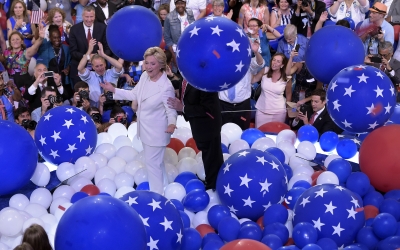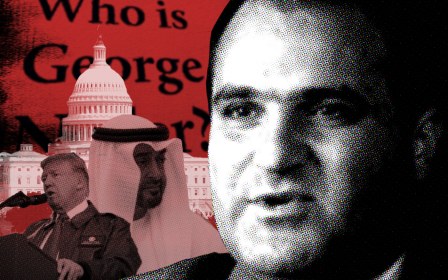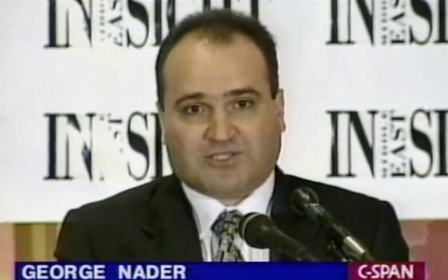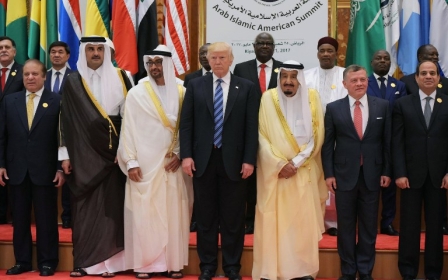REVEALED: UAE-linked donors gave $3m to Democrats and Republicans after Trump won
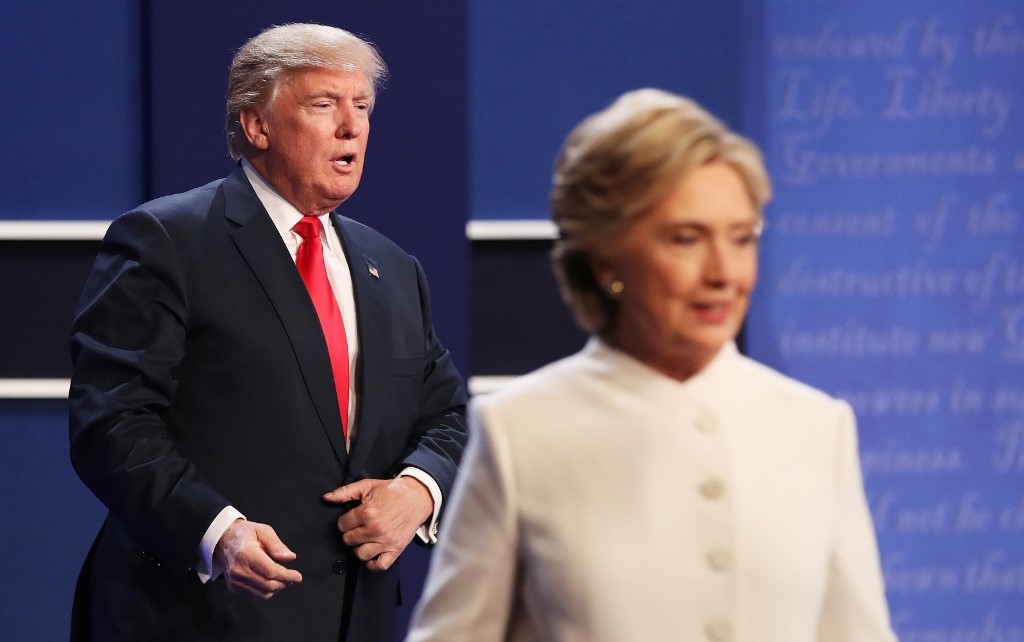
A group of men accused by the US Justice Department of conspiring to illegally funnel $3.5m from a Middle Eastern government to support Hillary Clinton’s 2016 presidential bid have since given more than $3m to both Democrats and Republicans, federal election records show.
Campaign finance experts told MEE that the revelations of the men's continued contributions raised "serious concerns" and should be scrutinised. The Justice Department declined to tell MEE whether it was investigating beyond the 2016 campaign donations.
New MEE newsletter: Jerusalem Dispatch
Sign up to get the latest insights and analysis on Israel-Palestine, alongside Turkey Unpacked and other MEE newsletters
Lawyers representing the men and, in some cases, the men themselves did not respond to requests for comment.
Earlier this month, eight men were charged in connection with an alleged scheme which aimed to help an unnamed foreign government gain access and influence in Washington.
Prosecutors say the money was channelled from the government through George Nader, a UAE adviser, convicted paedophile, and key witness in special counsel Robert Mueller’s investigation into Russian interference in the 2016 US presidential election.
The government was not named in the indictment, but has been identified by the New York Times as the United Arab Emirates. Middle East Eye asked the UAE embassies in London and Washington whether the country was involved, but has not received a response.
Nader gave the money to the seven other men, mostly based in Los Angeles, who then gave donations to Clinton and Democrat allies ahead of the presidential elections, according to the indictment.
The indictment notes that when Clinton lost to Donald Trump in November 2016, the company of one of the men – Andy Khawaja, the CEO of West Hollywood-based Allied Wallet – then contributed $1m to Trump’s inaugural committee, a fact confirmed in the public record.
That contribution, which prosecutors say gave Khawaja and Nader access to Trump's inaugural celebrations in Washington, has already sparked questions about whether Nader was the source of the funds.
Now an analysis of federal election records shows that most of the men continued to give significant donations to the Democrats and added Republicans to their contribution lists, raising further queries about whether the alleged scheme continued after Trump came to power.
Playing both sides
In addition to the $1m Khawaja gave towards Trump's inauguration, the men gave over $2m to committees, politicians and candidates from both sides of the aisle following the 2016 election.
The biggest spender was Khawaja who records show gave over $1.1m to Democrats, including more than $500,000 to the Democratic Congressional Campaign Committee (DCCC) which helps get Democrats elected to the House.
He gave only $2,700 to one Republican, Greg Gianforte, the US Representative from Montana who was convicted of assaulting a journalist in 2017.
Rudy Dekermenjian, a one-time law clerk who became a producer for a reality TV show that Khawaja created about models and served as an attorney for Allied Wallet, gave $100,000 to Democrats after the election, according to federal records.
Stevan Hill, also charged in the alleged 2016 scheme, gave $65,000 to the Democrats in 2018, the majority of which went to the DCCC.
Three of the men - Mohammed Diab, Thayne Whipple and Roy Boulos - focused their attentions on Republicans, giving over $725,000 to committees and candidates.
Diab, the chief operational officer at Allied Wallet, gave a total of $539,600 in 2017 and 2018 to party committees, and 20 Republican House candidates in 12 different states, according to federal election records.
Boulos, who owns a cigar, wine and liquor store in Las Vegas, gave $135,600 to the Republican National Committee in March 2018, the records show.
And Whipple, who was an Allied Wallet contractor and the elected school board president of the Ojai Unified School District in southern California, gave $50,000 to the Republican National Committee in September 2017.
He told The Ventura County Star earlier this month that the allegations against him outlined in the indictment came as a complete surprise.
“I have contributed to political candidates, nothing more and nothing less. I have to trust that as the facts are presented, my name will be cleared,” Whipple reportedly wrote in an email.
Scrutiny needed
Campaign finance experts told MEE that they weren’t shocked to see donations cross the aisle after November 2016, particularly given that Trump’s win took many donors by surprise.
“It’s important for the public to understand that this is what political contributors sometimes do and the reason they do it is to buy access and influence,” Paul Ryan, the vice president of policy and litigation at the Washington, DC-based watchdog Common Cause, told MEE.
'If the same individuals are involved, I have very serious concerns that the same campaign finance laws may have been broken'
- Paul Ryan, Common Cause
Ben Freeman, the director of the Foreign Influence Transparency Initiative at the Washington, DC-based Center for International Policy, told MEE expanding giving to the Republican party made sense after 2016.
"If you are looking to rub elbows with high-ranking party offices - the Mitch McConnells and Devin Nuneses - your best bet is to hit up the party. You are in the loop with everybody," he said.
"This actually fits the mold of what we typically see in the foreign influence space. Foreign lobbyists aren't picking sides, they're doing whatever they can to influence both sides and that often means giving substantial sums of money to both parties."
Ryan said he hoped the Justice Department would scrutinise the political contributions made by the indicted men after the 2016 elections “for the same reason that I’m glad the DoJ has scrutinised and brought indictments for the straw donor contributions that were made pre-2016”.
“If the same individuals are involved, I have very serious concerns that the same campaign finance laws may have been broken with respect to the post-2016 contributions,” he said.
In general, Ryan said it was not uncommon for the Justice Department to bring indictments and then to continue to work on the same cases. Indictments, he said, give the department leverage as investigations unfold.
The case focused on the alleged finance scheme around the 2016 contributions went before a federal judge in Washington, DC last week.
According to reporters in the courtroom, prosecutors said Khawaja is considered a fugitive. He reportedly told Mother Jones in October that allegations against him had been manufactured by Republican operatives worried about his support for Joe Biden's presidential bid.
Middle East Eye delivers independent and unrivalled coverage and analysis of the Middle East, North Africa and beyond. To learn more about republishing this content and the associated fees, please fill out this form. More about MEE can be found here.


